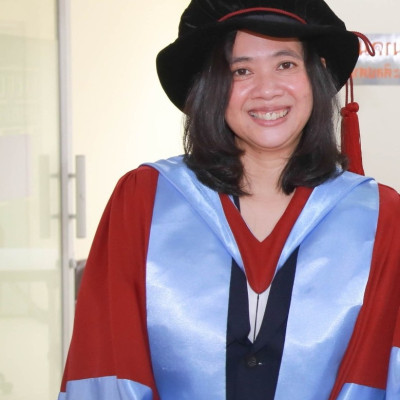Sessions / Location Name: Room E303
Location not set by organizers
Location:
Building: Lecture Hall Building < Tokyo University of Science, Katsushika Campus
Building Our Replacements: An AI-Driven, Personalized, Anytime, Anywhere Language Teaching Expert System #4186
Co-presented with an AI, we describe and demonstrate our progress in developing a personalized language-learning expert system, tutor, and companion. We discuss the history, inspiration, and components of the model—including needs analysis, lesson creation, user interaction, and ability/knowledge banks. We examine the scarcities often taken for granted in language learning and how emerging AI technologies remove these constraints and create new possibilities. Through interactive demonstrations, we show how the AI supports, assists, and gives feedback with daily language tasks in real time and engages in conversations about movies, TV shows, and books while gradually introducing target language items tailored to your readiness and needs. We also take a critical look at the (rapidly diminishing) weaknesses and shortcomings of AI-driven education, pose essential questions about its role, and explore future directions for AI in language teaching and learning. Participants will come away with an understanding of the possibilities and limitations of AI in language learning, learn some prompts you can use to replicate some of what we’ll be doing in the presentation, and learn how to connect with other developers and users of the technology.
Empowering Vocabulary Instruction with ChatGPT: Practical Prompts for EFL Classrooms #4173
Repeated exposure is the name of the game in language learning. However, textbooks often lack sufficient breadth of content within each unit, and finding resources that feel like a natural extension of a particular textbook is easier said than done. This workshop introduces practical ways English teachers can use generative AI to create vocabulary-based supplementary materials that align with their existing textbooks. Participants will learn prompt engineering techniques to generate level-appropriate resources using target vocabulary such as example sentences for worksheets and quizzes, dialogue scripts for speaking activities, and reading passages based on unit themes. The session will include real examples of materials created for university students in Japan, and participants will have opportunities to modify or generate their own prompts. Emphasis will be placed on designing effective and reusable instructions that yield predictable output, enabling teachers to quickly and reliably create multiple activity sets tailored to their needs. ChatGPT will be the primary tool used in this workshop, but the principles introduced here can be applied to other generative AI platforms. Participants are encouraged to bring their own devices to take full advantage of the demonstrations.
Triangulating Assessment with Cloud-Based Tools for Collaborative Learning #4355
This presentation showcases how cloud computing can streamline multifaceted assessment (instructor, self, and peer) for group and individual language learning activities, such as oral presentations. Traditional reliance on instructor-only evaluation often overlooks collaborative dynamics and ignores other feedback opportunities. Peer and self evaluations augment the saliency and legitimacy of the assessment of students’ efforts. Moreover, they provide a useful means for instructors to determine whether students are perceiving the requirements of a given assignment such as the instructor envisioned. Using Google Workspace (Forms, Sheets, Drive), we will demonstrate a practical system to collect, weigh, and analyze diverse feedback sources efficiently. Rubrics guide peer and self-assessments, while Sheets calculate weighted scores, ensuring fairness and transparency. Drawing from our tertiary-level experience, we will share strategies to process data meaningfully, showing which inputs best reflect student achievement. Our presentation will explain and demonstrate a technology-enabled approach that aims to triangulate assessment and enhance feedback’s educational impact. We will demonstrate how to use cloud tools to create multi-faceted feedback from the perspectives of the teacher and peers, and how to deliver this on a timely basis. Participants will explore hands-on templates and leave with actionable insights to refine assessment practices in their classrooms.
The Impact of Virtual Exchange on Communicative and Intercultural Competence in SLA: A Case Study of an Online Course in Taiwan and Germany #4350
Recent research on virtual exchange and its implications for second language acquisition (SLA) highlights the vital role of digital platforms in enhancing language learning experiences. Virtual exchange, which facilitates online intercultural interactions, enables learners from diverse linguistic and cultural backgrounds to engage in authentic communication. This interaction fosters second language development and intercultural competence by providing meaningful learning opportunities.
This study aims to examine the impact of virtual exchange on communicative and intercultural competence among EFL learners in two universities. Specifically, we investigate whether virtual exchange facilitates learning efficiency and the role of students' attitudes toward virtual exchange in developing their second language learning experiences.
The study involves 19 EFL learners participating in a 12-week virtual exchange program. In the first part of our presentation, we will discuss the design and implementation of the course, highlighting the impact of virtual exchange on student engagement, linguistic development, and intercultural competence. In the second part of the presentation, we will present findings from our mixed-method analysis, which examines the role of virtual exchange environments in second language acquisition and professional skill development. This study provides researchers with practical insights for designing virtual exchange experiences that enhance learning motivation and performance.
Japanese university students’ impressions of two COIL exchanges with Canadian and Taiwanese university students #4347
Within collaborative-online-international-learning (COIL) projects, program goals for developing foreign language proficiency and intercultural competence and the students’ experiences are shaped by the unique characteristics of the partner institutions’ teachers and students and logistical constraints. This presentation focuses on 20 second-year Japanese university students’ experiences in two exchanges. While the topics and tasks were similar, three distinguishing features between the programs were duration (four vs eight sessions), languages utilized (English & Japanese vs English only), and language proficiency (interacting with native speakers of English studying Japanese vs. native speakers of Mandarin Chinese studying English). Program goals, defined using CEFR Can-Do descriptors, are discussed in relation to previous exchanges. Students’ use of online tools are introduced to illustrate program implementation. Student impressions are examined through qualitative data elicited with a survey informed by Deardorff’s Intercultural Learning Outcomes (2022), and to a lesser extent quantitative data concerning Communication Anxiety and L2 WTC (Yashima 2009). Analysis of the qualitative data shows that students were satisfied with the program and they mentioned the benefits of participation. However, their experience did not result in significantly less communication anxiety, and even their L2 WTC dropped. The presentation concludes with a discussion of the contradictory findings in the data.
Videoconferencing for L2 Oral Task Repetition Research and Practice #4329
A substantial body of research has demonstrated the benefits of oral task repetition in enhancing second language (L2) performance. However, empirical studies investigating its effects on L2 development through longitudinal designs remain limited. This limitation may be partly due to the methodological challenges of traditional classroom- and laboratory-based research, such as participant attrition and scheduling difficulties. This presentation offers a methodological discussion focused on the potential of online oral experimentation via videoconferencing—experiments conducted through synchronous computer-mediated communication using platforms like Zoom and Microsoft Teams—to advance L2 oral task repetition research. After reviewing the methodological characteristics of conventional classroom- and laboratory-based studies, the presenter outlines the advantages of online experiments conducted via videoconferencing, including convenience and flexibility, increased efficiency, better control of extraneous factors, and automated speech transcription. By drawing on the presenter’s own experience conducting an online oral experiment (a multi-session task repetition study aimed at improving L2 learners’ oral fluency), the session will provide methodological recommendations to help future researchers successfully conduct an oral experiment via videoconferencing. The presentation will also highlight practical implications for L2 teachers by identifying task types and learner groups that may be especially well-suited to videoconferencing environments.
The Effect of Experience on Student Participation in Online Intercultural Collaborations #4177
Online intercultural collaborations and virtual exchange programs have become common in EFL classes around the world, however research into the effectiveness of students’ participation in such programs is limited. Following up on previous research into students’ perceptions of these programs, this study compared student participation levels over a 2-semester period to see whether experience led to students participating more. English-major students at a Japanese private university participated in the IVEProject online intercultural collaboration project across both semesters of their third year of study. The participation logs of over 60 project participants in two cohorts were analyzed to ascertain whether performance and engagement improved in the second semester. This study reviewed the number of posts made, the number of words written, and the engagement level of the participants. This session details the quantitative findings of two years’ worth of participants’ engagement in the IVEProject. This presentation will include a brief explanation of the IVEProject as well as examples of how students engaged with other participants. Then the study data and findings will be explained, with suggestions for how attendees can effectively incorporate IVEProject participation in their language courses to increase opportunities for interpersonal communications in English.
Speaking Practice with ChatGPT in Preparation for a Short-Term Study Abroad Program: A Case Study #4317
The advent of the ChatGPT app, which allows users to engage in real-time conversations with the language model, has opened incredible possibilities for language learners. ChatGPT can now act as a language exchange partner that is available 24/7. In preparation for a one-month Study Abroad Program and Homestay in Canada, I instructed two students to use ChatGPT for additional speaking practice. The written data of the conversations of one student was collected from the ChatGPT webpage as a case study. The results of qualitative analysis of the number of appropriate student responses to Chat GPT questions, the number and types of communicative strategies used by the student, and the number and types of miscommunications will be presented. The results of a questionnaire given to the student on the perceived usefulness of using ChatGPT in preparation for such a program will also be presented. Finally, the Pros and Cons, lessons learned, and areas of future research will be discussed.
Exploring the Lived COIL Experiences of University Students in Japan with Partners in Southeast Asia #4216
During the COVID-19 pandemic, collaborative online international learning (COIL) emerged as an alternative to overseas sojourns; however, few studies have explored the role and impact of COIL in the current post-pandemic era and how it may influence intent to study abroad. In this session, the presenter will report on a government-funded study involving 13 university students in Japan and COIL partners in Thailand and Indonesia, which took place from September to December 2024. The presenter employed interpretive phenomenological analysis, drawing on data from pre- and post-intervention surveys, journaling, and reflective interviews. In attempting to identify the Japanese participants’ essence of experience during COIL, analysis yielded clusters of meaning related to comfort, authenticity, intercultural competences, and an increased desire to study overseas. COIL provided students with international education experience, which is valuable not only for those with intent to study abroad, but also those facing financial or academic constraints. Educators and administrators attending this presentation will gain insights into developing more effective intercultural curriculum through COIL, which may increase autonomy in pursuing authentic second-language learning opportunities in Japan, Asia, and beyond.
AI-Enhanced Telecollaboration for EFL Teacher Development and Cross-Cultural Learning #4276
This study investigates an AI-enhanced telecollaboration project in which EFL teachers from Taiwan and South Korea co-designed cross-cultural communication activities with feedback from ESOL teachers in New Zealand. Supported by a professional development program, the participating teachers used AI tools—including ChatGPT for designing AI agents simulating conversational partners and AI-generated lesson plans—to scaffold instruction in politeness and face-wants. These tools were integrated into the GatherTown platform, an immersive and gamified environment, for online interaction among middle school students from Taiwan, South Korea, and New Zealand. A mixed-methods approach was employed for data collection, including surveys, focus group interviews, discourse completion tasks (DCTs), and lesson artifacts. Pre- and post- surveys revealed teachers’ professional growth and the development of EFL learners’ intercultural sensitivity. DCTs examined these learners' pragmatic competence in politeness and face-wants across cultures. This study provides valuable insights into AI-enhanced teacher development and their challenges in integrating AI into intercultural communication instruction. Findings reveal students’ positive learning experiences and the potential of AI-driven telecollaboration to foster authentic cross-cultural interactions. However, challenges such as technological adaptability and instructional complexities emerged. The study offers pedagogical implications for CALL-based intercultural education and future research suggestions for AI-enhanced telecollaboration in EFL contexts.
Enhancing EFL Speaking Practice with AI: A Hands-On Introduction to Tevo #4458
Sponsor
One of the biggest challenges Japanese EFL learners face is limited access to speaking opportunities outside the classroom, which hinders fluency development. At the same time, the time-intensive nature of spoken tasks makes it difficult for teachers to provide individualized feedback and analytics. This hands-on workshop introduces Tevo, a web-based AI chatbot application designed to help solve both problems through role-based conversation, real-time feedback, and detailed learning analytics.
After a short overview of Tevo’s core features, participants will create and deploy chatbots aligned to their own course content. You’ll get to experiment directly with voice-based interaction, explore the real-time feedback system, and examine how analytics can guide classroom instruction. We’ll conclude with a Q&A focused on best practices and strategies for integrating AI while preserving the central role of teachers.
A Study on Integrating Project-Based Learning into a COIL Workshop for Taiwanese and Thai Students #4234
This study examines the integration of Project-Based Learning (PjBL) into a Collaborative Online International Learning (COIL) course involving Taiwanese and Thai college students. A 5-week PjBL module was incorporated into an intermediate-level English Listening and Speaking course for 20 Taiwanese freshmen and 10 Thai Business English graduate students. Following the 4-phase model of SUNY COIL Center—icebreaking, online sessions, team collaboration, and reflection—mixed teams worked on real-world tasks and produced multimedia projects evaluated by instructors and PjBL experts. Data from pre- and post-surveys, interviews, and course feedback examined perceptions of teamwork, intercultural sensitivity, and language skills. Findings showed that Thai graduate students took leadership roles and actively supported their Taiwanese teammates in group tasks. Both groups reported improved collaboration, intercultural competence, and spoken English confidence. This study highlights the potential of global partnerships to enhance EFL learning through PjBL and COIL, fostering language proficiency and cross-cultural teamwork.
Using AI to Enable Intercultural Communication Through Virtual Exchange Projects for Pre-Service Teachers #4180
Collaborative Online International Learning (COIL) has been promoted as a supplement or alternative to traditional study abroad programs. COIL can facilitate intercultural communication as well as enabling language exchange between multilingual language learners. In general COIL projects are set up pairing small groups or whole class exchanges. These projects work well with self-motivated students who are able to interact in English in real-time. Unfortunately, very few COIL projects are available for students without strong English language skills. This presentation will share data from a Virtual Exchange project between 16 pre-service kindergarten and elementary school teachers and eight in-service teachers from around the world. AI enabled students with lower English language skills to not only prepare for the exchange, but also to understand the exchange through transcriptions and automated summaries in real-time. The presentation will include a detailed explanation on how the project was set up and carried out using AI on Zoom. Ways in which this project attempted to overcome challenges often encountered by teachers conducting traditional COIL projects will also be shared with suggestions for improvement on future projects.
Building Confidence in English Communication: The Role of Asynchronous COIL for Japanese Students #4297
Collaborative Online International Learning (COIL) has been widely applied since the early 2000s, connecting students across countries to collaborate on projects. This study examines two key questions: (1) How can COIL help Japanese students build confidence in speaking and communicating in English? (2) How can COIL address the difficulties Japanese students perceive in learning English? A pilot program using asynchronous interaction to accommodate time zone differences was implimented. Convience sampling was used with both researchers teaching one class of 32 first-year Japanese students and one class of 10 first-year Norwegian students (CEFR A2–B1). Both classes collaborated in an online exchange via LINE OpenChats where they shared video presentations, peer feedback, and work revisions. The project aimed to simulate real-world global communication by encouraging students to engage in thoughtful, self-paced discussions rather than immediate exchanges. Mulitple surveys and twice-weekly reflections provided data that revealed student’s positive experience by self-reporting increased confidence, engagement, and motivation. Many found asynchronous interaction less intimidating than live discussions. Findings suggest that COIL fosters meaningful international collaboration, enhances learner autonomy, and mitigates language learning challenges in diverse educational settings. Asynchronous formats may offer an effective alternative to synchronous exchanges, particularly for learners with lower confidence levels.
ChatGPT-Enhanced COIL: Fostering Conversational Skills through Personalized Oral Tasks #4198
Collaborative Online International Learning (COIL) is a teaching method that connects students and teachers from different countries to collaborate on projects within their curriculum. Although numerous studies have examined COIL, none, to our knowledge, have addressed AI-assisted language learning in COIL interactions, particularly in Japanese higher education. This presentation explores the learning outcomes of using personalized oral tasks with ChatGPT during COIL. These tasks were tailored to each student’s specific learning needs to prepare them for successful COIL interactions. This study involved Japanese students participating in two COIL projects with American universities. AI-assisted learning occurred shortly after the first COIL project and before the second. To track students’ progress, transcripts from their practice conversations with ChatGPT were collected, along with recordings of their interactions during Zoom meetings. Discourse analysis was employed to interpret the data and understand how students used the language practiced with ChatGPT in their interactions. The findings indicate that students developed conversational strategies through practice with ChatGPT, which they then applied during their second COIL interactions. Additionally, the analysis of students’ reflections revealed their perceived benefits of AI-assisted learning for improving conversational skills. The implications of this approach for real-life communication in virtual settings, are discussed.




















